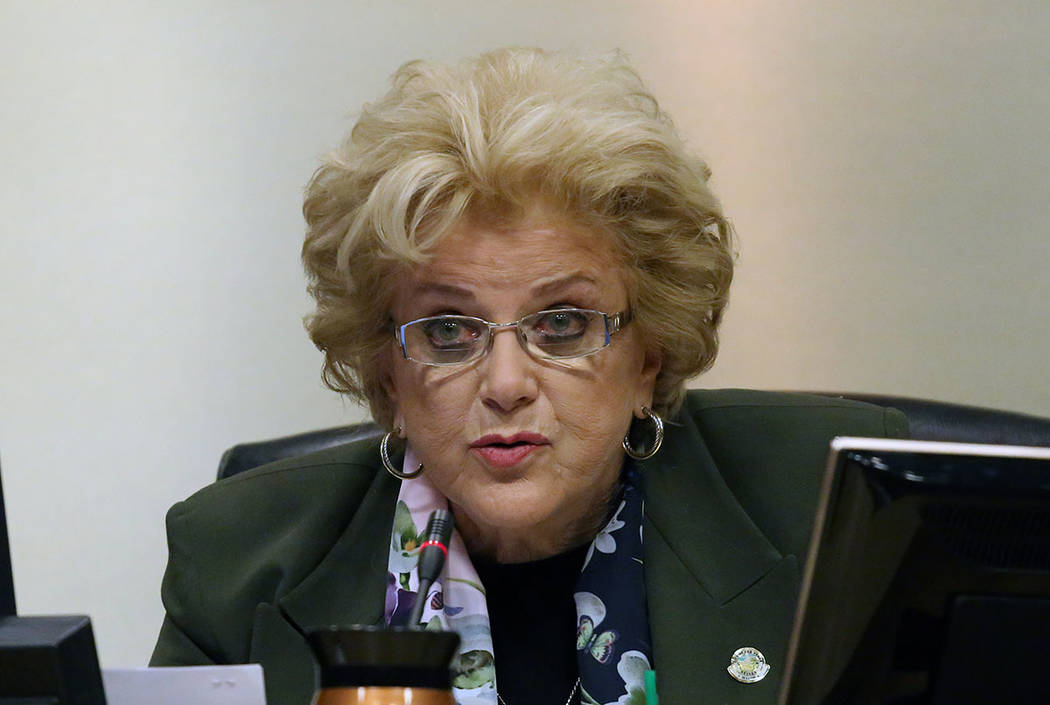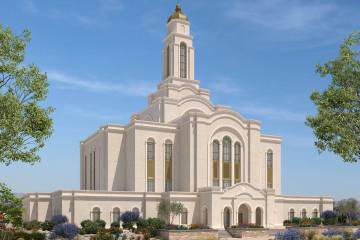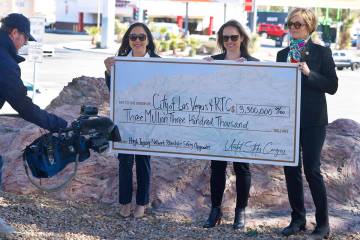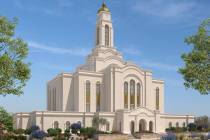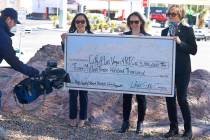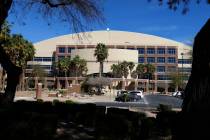UNLV study wants automatic fire sprinklers in all new homes
A UNLV study concluded the Las Vegas City Council should mandate automatic fire sprinkler systems for all new single-family homes, a measure city officials have left on the table without a vote for months.
A presentation on the UNLV cost-benefit analysis is listed on Wednesday’s City Council agenda but has already been delayed.
The council OK’d the business impact statement for the sprinkler proposal in May, a precursor to voting on the ordinance itself. But the measure mandating fire suppression sprinkler systems in all new residences has been in limbo since.
Las Vegas Mayor Carolyn Goodman said Friday she hasn’t heard a convincing argument for why the city shouldn’t require sprinklers.
“Safety is always first to me,” Goodman said.
Southern Nevada Home Builders Association Executive Director Nat Hodgson said in an email that the association is in talks with city officials “to address our concerns about the impact of sprinklers on homebuyers.”
Earlier this year, the association responded to the city’s proposal with a letter contending homebuilders would need to pass along some or all of the costs of sprinkler installation by hiking the price of homes.
The group also “calls into question whether the benefits are worth the costs,” according to the city’s business impact statement for the proposed sprinkler ordinance.
The city commissioned UNLV’s Greenspun College of Urban Affairs to conduct an independent analysis of the effects of a local law requiring all new single-family homes in Las Vegas to have fire sprinkler systems. State law requires a cost-benefit analysis every time a fire sprinkler ordinance is on the table for buildings with fewer than 5,000 square feet of livable space.
That followed up on a National Institute of Standards and Technology study in 2007 and a Southern Nevada Home Builders’ Association-commissioned Applied Analysis study from 2015, which produced different findings about the costs and benefits of a fire sprinkler mandate to homeowners and the wider community.
While the national study found the benefits of fire sprinklers outweighed the costs, the Applied Analysis study found that using only Clark County data for fire probabilities and system installation costs didn’t produce the same results. But Applied Analysis didn’t factor in a mandate for homes that are 5,000 square feet or smaller, leaving the cost-benefit analysis “incomplete,” according to UNLV’s review.
UNLV’s 2017 study found that when fire sprinkler systems are installed in new homes, they pay for themselves in a matter of months.
“The developers may be upset with the additional cost, but they will pass that along to the buyer,” Goodman said. “No question about it.”
The UNLV study contends that smoke alarms, on their own, are “too little, too late,” and they don’t provide enough of a warning to save lives. The alarms typically don’t activate until 45 seconds after the fire starts, while visibility amid building smoke becomes a problem somewhere between two and three minutes and temperatures can reach 1,000 degrees in about four minutes, according to the UNLV study.
Residential sprinklers are set to activate at 150 degrees Fahrenheit, and the average sprinkler system puts out water at an average of 13 gallons each minute.
The bottom line for City Councilman Bob Coffin is “lives would be lost without it,” he said.
Contact Jamie Munks at jmunks@reviewjournal.com or 702-383-0340. Follow @JamieMunksRJ on Twitter.



